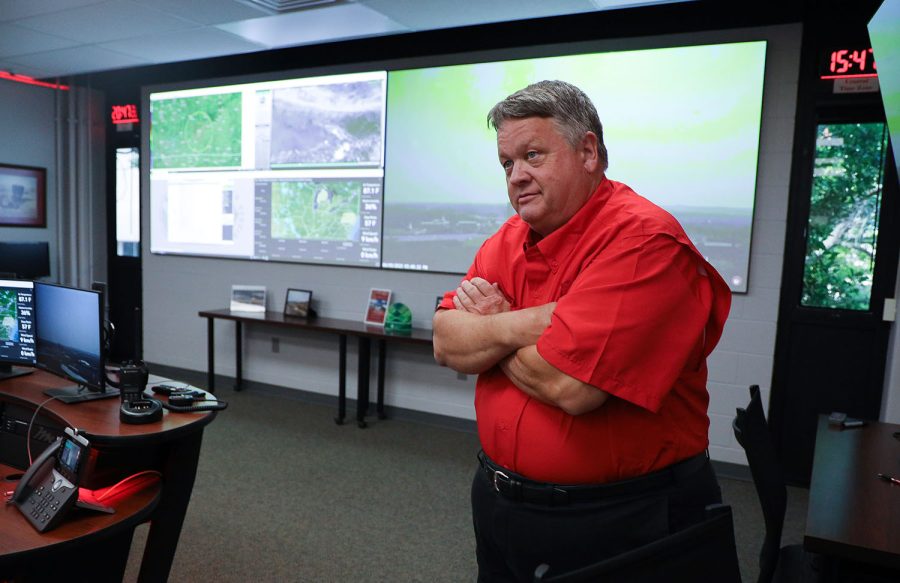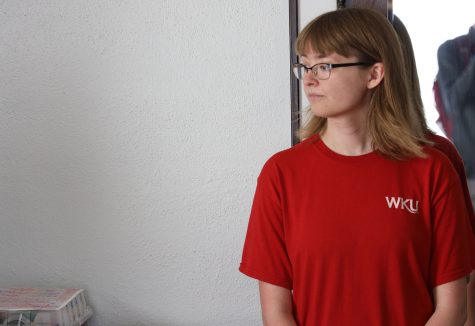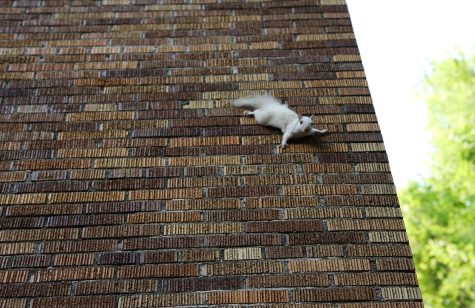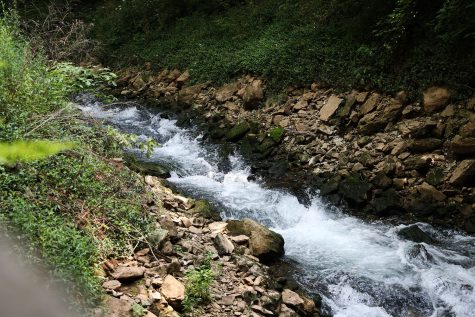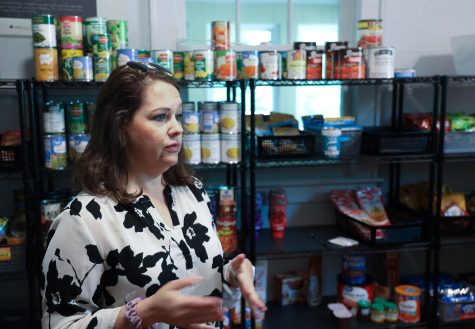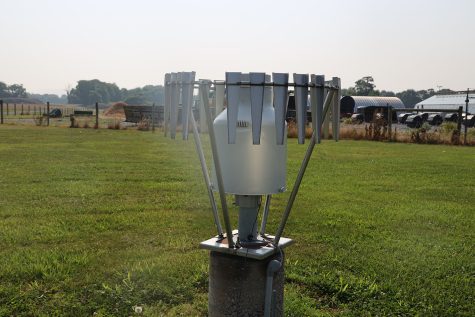DSOC gives students experience in planning for unexpected
Kiana Kirk/Caverna High School
David Oliver discusses the weather program in the Disaster Science Operations Center in the Environmental Sciences and Technology building on WKU’s Campus.
Who would’ve guessed that the Chicago Marathon and the Special Olympics in Orlando rely on students from Western Kentucky University to keep their events running safely?
The students involved in WKU’s Disaster Science Operations Center, which provides up-to-the-minute weather conditions and advice for organizers of major events, get hands-on experience in disaster management. And that experience can help them land jobs.
The weather data provided from the DSOC’s headquarters in the Environmental Science and Technology Hall at WKU empowers event managers to make tough decisions quickly, said David Oliver, WKU’s director for environment, health and safety.
“It’s not about shutting something down,” said Oliver, who also is co-director of the DSOC with professor Joshua Durkee. “A lot of the time it’s about keeping something going.”
It isn’t only about the weather. The DSOC crew has assisted the communications team at Walt Disney World manage an outbreak of Covid-19 while in Orlando for the Special Olympics. They also help coordinate WKU’s response in emergencies, such as the aftermath of the Dec. 11, 2021, tornadoes that struck Bowling Green.
The experience helps students in WKU’s disaster management program get field expertise, which can lead to careers. Former DSOC graduate student John Bowen now works for the National Weather Service as a forecaster.
The students do their work in real-time.
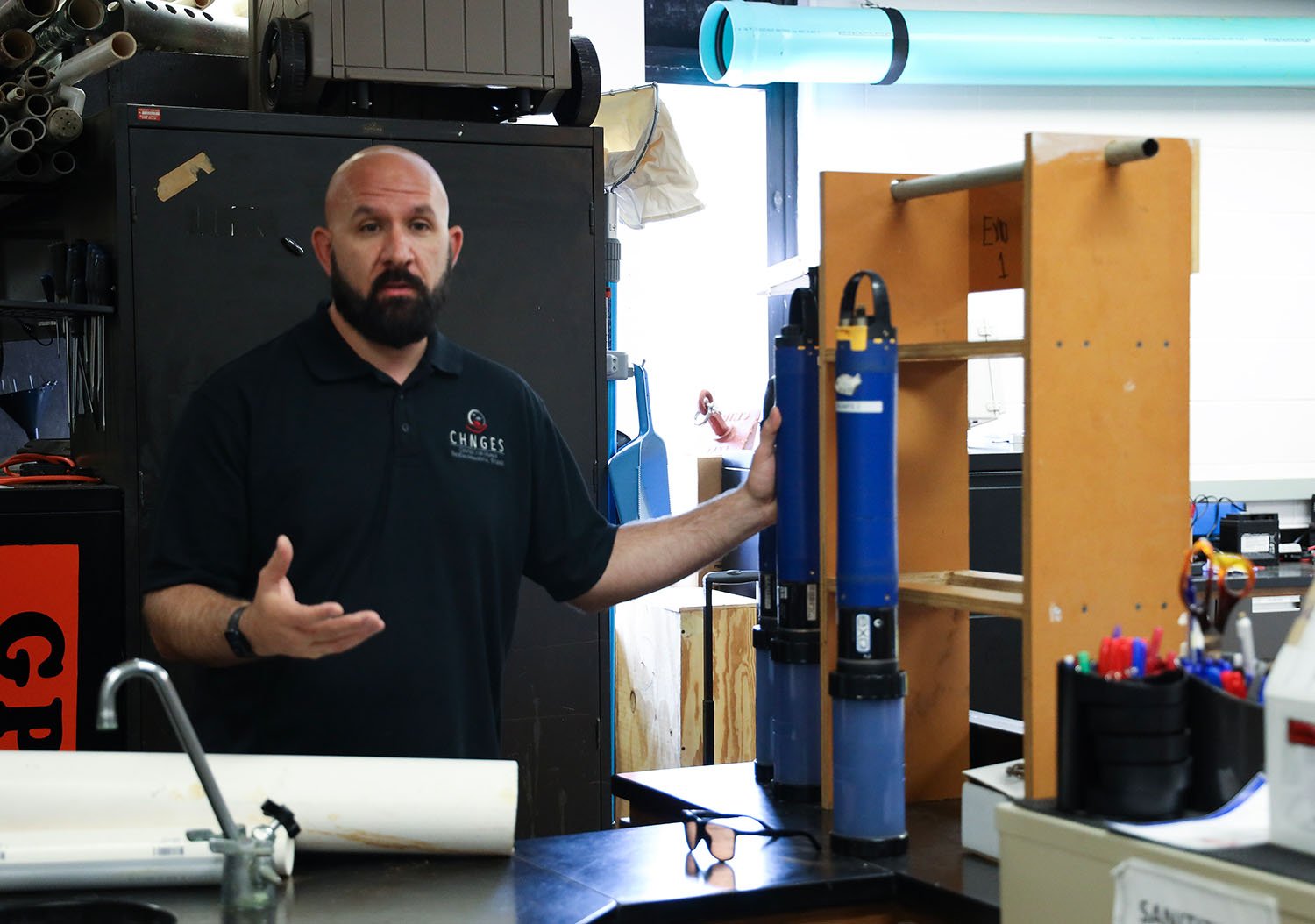
When monitoring the Chicago Half-Marathon earlier this month, students in the DSOC were connected to event organizers by Zoom. The students and professionals at the DSOC, however, were not in control of the event. They merely advised.
The DSOC provides what Oliver calls “decision support,” which helps to mitigate the damage caused by a lack of decision-making, such as the chaotic scene earlier this year in Cincinnati’s Flying Pig Marathon when more than 5,000 runners faced buckets of rain and dangerous lightning strikes.
At an event without comprehensive meteorology and emergency support, staff may be forced to rely on weather apps on their phones without the insight of educated professionals or the accuracy of specialized teams like the DSOC.
“It’s getting to be that more and more [events] do have meteorology, but there are still a ton that do not,” Oliver said.
Public awareness and community outreach are big focuses for the program, Oliver said. The crew plans to put the DSOC logo on the sides and top of a new mobile command center. A renovated 36-foot trailer is currently being outfitted to act as a mobile command center for the DSOC, replacing an existing 10-foot trailer and expanding the team’s on-the-go capabilities.
With more mobile capacity, the DSOC will be able to provide essential weather and hazard management services to more events, Oliver said.
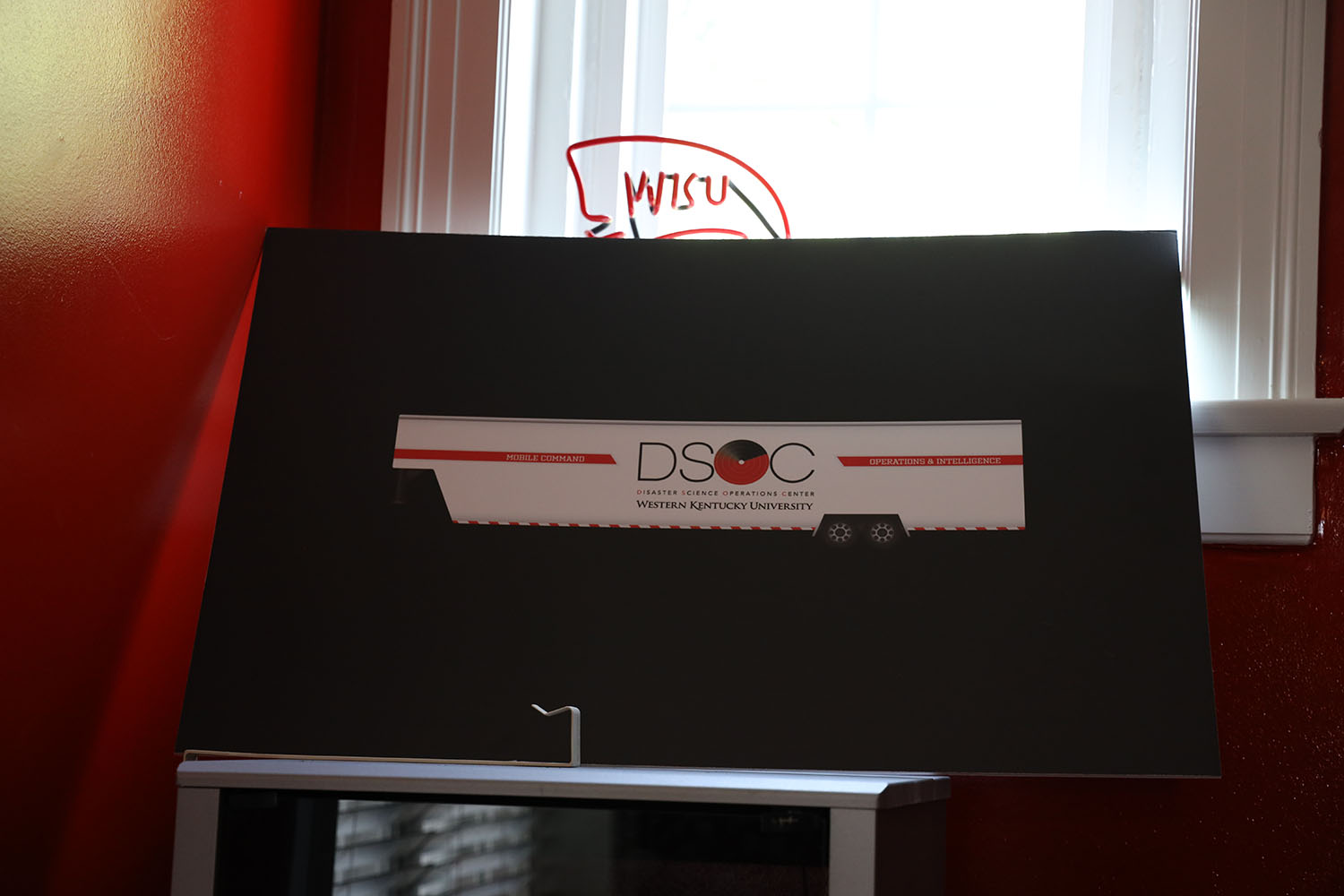
The new trailer will have air-conditioning, unlike its predecessor, along with seven workstations, wi-fi, and weather monitoring equipment. While they still plan to use the 10-foot trailer in situations where a more agile vehicle is necessary, the new trailer will be a more comprehensive, forward-operating base, Oliver said.
Just like anything else done by DSOC, deployment of either mobile unit requires planning. Foresight truly is at the heart of disaster management, and to cover all of your bases, you need to reliably predict what comes next, said Oliver.
“We know it’s coming,” Oliver said, “We can tell them and give them a broader span of time to react and get people to safety and that’s really our goal.”

